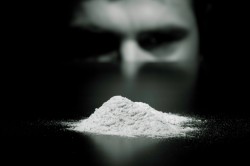Do I Need Cocaine Addiction Treatment?
The Consequences of Cocaine Abuse
Cocaine abuse will take a toll on your health, both mentally and physically, and can also alter your behavior, especially if you have developed an addiction to the drug. Every time you abuse cocaine you cause more damage to your brain’s chemical makeup, and you risk the chance of heart attack or stroke, which are both fatal.
According to the National Institute on Drug Abuse, cocaine negatively affects a person’s body in various ways. Cocaine dilates pupils, constricts blood vessels, dilates and increases body temperature, blood pressure and heart rate. Moreover, cocaine also causes headaches, abdominal pain and nausea, and cocaine also will decrease appetite, which can result in malnourishment.

If you or someone you love is struggling with a cocaine abuse problem, it may be time to seek help.
Cocaine abuse often leads to addiction, and if you develop an addiction to cocaine you will have even more negative consequences in your life to deal with. For starters, you may pull away from your family and friends, and you may lose your job or your financial stability so that you can support your drug use. In addition, you may start to have rapid mood swings every time you do not have any cocaine in your system, or enough of it in your system. Cocaine addiction and abuse are dangerous and if you are suffering from cocaine addiction, you should seek out help from a cocaine addiction treatment program.
Deciding if You Need Cocaine Addiction Treatment
According to the National Institute on Drug Abuse, in order for people to keep their high from cocaine, people often use the drug in a binge pattern, ,which means they take the drug repeatedly within a short period of time, at gradually higher doses. This binge pattern can easily lead to addiction, which is a chronic relapsing brain disease caused by changes in the brain and characterized by uncontrollable drug-seeking and use, no matter the consequences.
Even if you are frequently abusing cocaine, you are at a high risk of developing an addiction to the drug, and even if you do not feel the compulsive urges to continually use cocaine, your abuse of the drug will most likely lead to you having withdrawals once you stop using the drug.
Cocaine abuse can impact your brain so much that you may experience negative consequences of your drug abuse years after you stop using the drug. The more you continue to abuse cocaine, the more damage the drug is causing your brain.
If you are abusing cocaine or if you are addicted to cocaine then you should get help from a cocaine addiction treatment program. The withdrawals from cocaine are mostly psychological, which is why treatment is highly recommended, since you will need therapy, and you may need medications to help you deal with your chemical imbalances,
There are thousands of treatment programs available and you should research programs that meet your individualized needs in your area. There are also free support groups, such as narcotics anonymous that you may want to consider joining.

